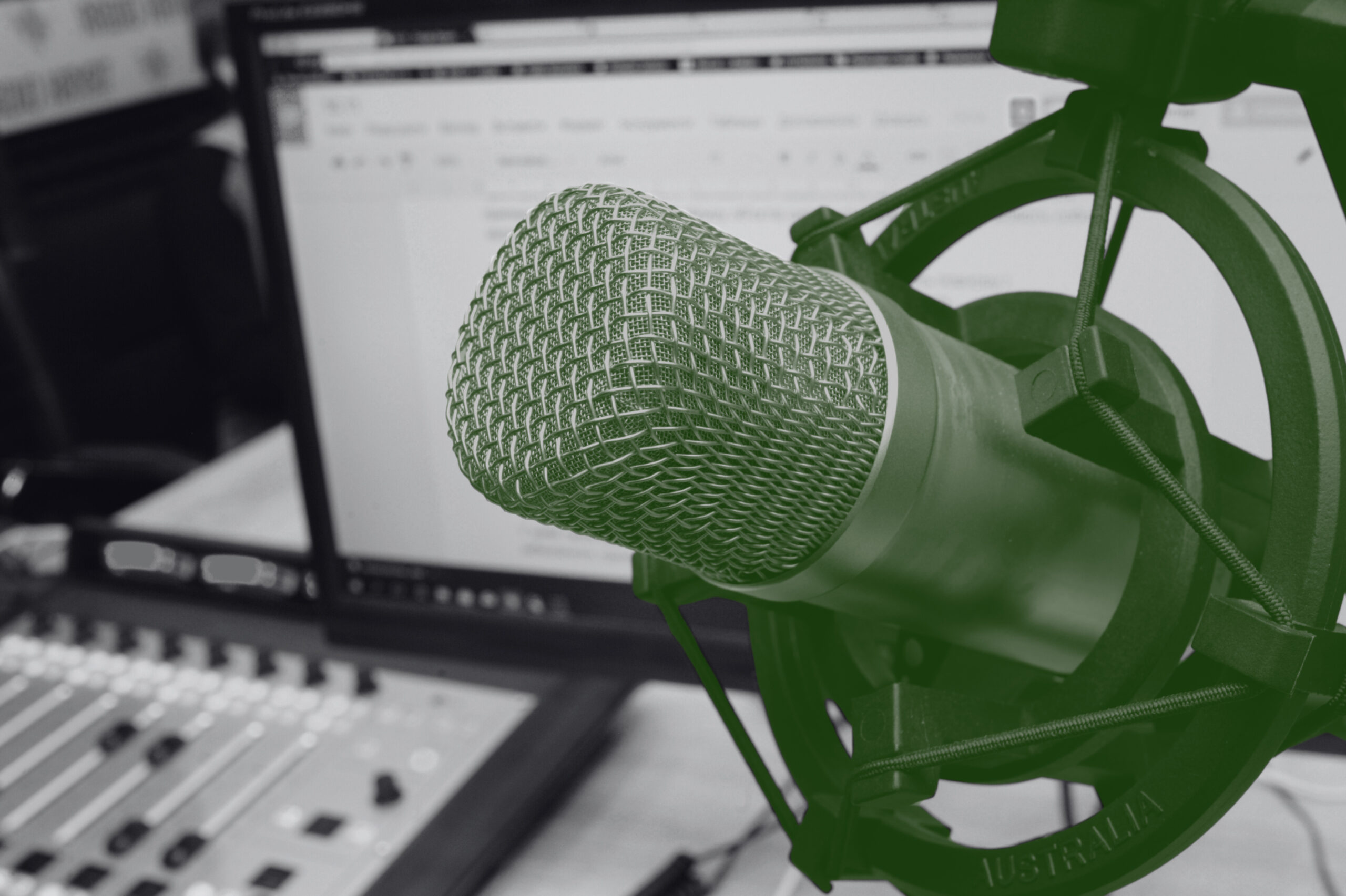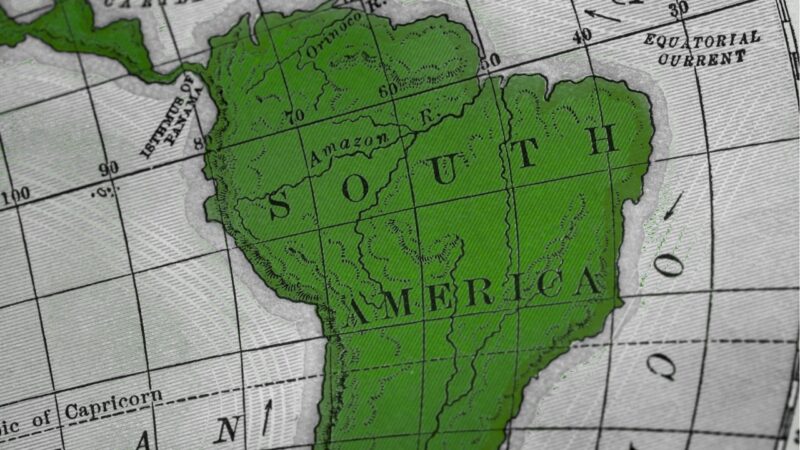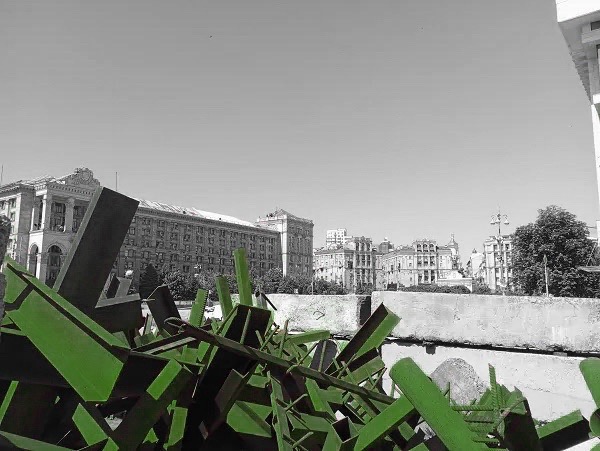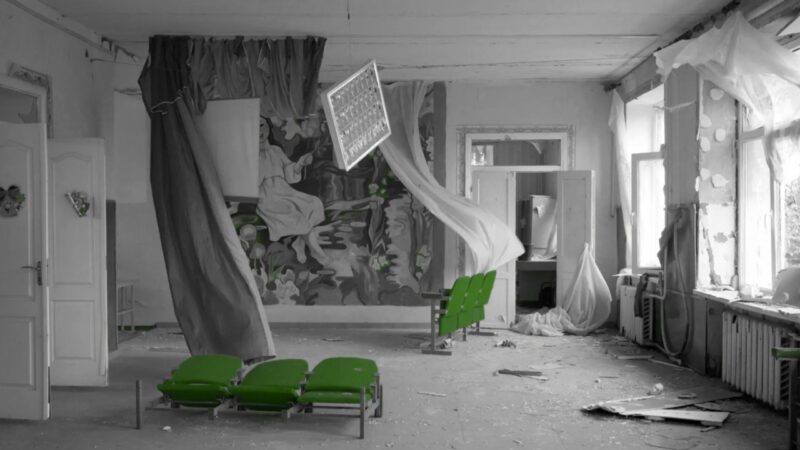Interview with Andriy Kulykov: Radio saves lives in Ukraine during the war

Oleksandr Pankieiev: What does it mean to be both a journalist and a citizen of a country at war? How has this dual identity shaped your understanding of your role and the purpose of journalism?
Andriy Kulykov: Essentially, being a journalist and a citizen of a country at war is the same as during peacetime, because war doesn’t fundamentally alter the nature of journalistic work. You must gather information, process it, and then convey it to your audience. The principles that guide professional and conscientious journalists remain unchanged during wartime. In any journalistic milieu, during times of crisis a heated debate often breaks out as to whether one can adhere to the profession’s standards when you are being challenged by internal or external factors. My answer is yes, you can. In fact, you have an even greater obligation to hold to these standards. Certain principles may be influenced by nuances, but upon closer examination they do not change. In reality, you have a greater responsibility and must hold yourself to a higher standard during times of crisis. Even in peacetime, the well-being and sometimes lives of your audience depend on you, and this is even truer during wartime. That is the only difference.
Pankieiev: How has the media landscape in Ukraine changed during the war? What is the current state of journalism as a profession?
Kulykov: I believe that after the initial adjustment period to the conditions of war, particularly martial law, journalists adapted quite quickly to their environment. Obviously, we cannot say that nothing has changed. There are clear qualitative and quantitative changes; for instance, many male journalists joined the army, and quite a few of our female colleagues did as well. However, due to the mobilization of male journalists, along with others, the percentage of women—especially in videography, sound engineering, sound production, and so on—has grown. Currently, the majority of our frontline correspondents are female colleagues, largely because many experienced male journalists were drafted or chose to fight as volunteers.
There is, of course, an effort on the part of the authorities to control what we gather and disseminate as much as possible. Various requirements have been issued by military authorities, the president’s office, and other governing bodies concerning when and what can be reported. However, I wouldn’t claim that this contradicts the usual practice entirely. When I worked for the BBC Ukrainian service in London, reports and dispatches were embargoed when the BBC was aware of something happening or about to happen, and for a time it was deemed unfeasible to make the information public. As far as I know, this practice of informational embargoes exists in other media as well. I often cite an example that my Slovenian colleagues mentioned regarding their war of independence, when the Yugoslav People’s Army attacked a major broadcasting tower in Ljubljana but missed it. Our Slovenian colleagues happily informed the public that they had survived and would continue broadcasting. Of course, the Yugoslav army heard this announcement and struck the tower again within half an hour, this time successfully. It illustrates how cautious one must be when reporting news related to combat actions or military operations, including casualties and similar matters. As for where to find the most accurate information, I refer to the communiqués from the Ukrainian military and the General Headquarters of the Ukrainian Armed Forces, with one caveat: one must learn to read them, as “military speak” differs significantly from “civilian speak.” For instance, back in 2014 when I read that our forces “gained control” of a specific location, I initially interpreted it to mean that our forces were present in that settlement, pushing the enemy away and holding the city. However, I later discovered this did not always correspond with what the maps showed, so I asked, and it was explained to me that in military language, “to take or gain control of” means being within a certain distance from a target, capable of reaching it with artillery, which changes the context entirely.
I advise my younger colleagues—many of whom have more military and wartime experience than I do—to first learn how to read the language that the authorities and military communicate in, and then you can gain a much clearer understanding of what is happening. To comprehend the atmosphere in the country better, it is also important to pay attention to what local or provincial colleagues outside Kyiv, Lviv, and other major Ukrainian cities are reporting.
I serve on the jury for a Lviv regional journalism contest for war reporting, and when you see six or seven entries from a small town—and each entry essentially serves as an obituary for a fighter who died on the front line—you gain a much clearer understanding of the scale of Ukrainian losses than any report from official authorities can provide. We know, and our leaders have acknowledged, that they are not going to reveal the full extent of losses for various reasons.
To be true to your audience and provide a comprehensive picture, you must also turn to smaller publications for information. Another change in our media landscape has been—and continues to be—the rising role of the local printed press and the growth of radio in general.
Pankieiev: You mentioned the crucial role of local press during the war, which is often overlooked. You pointed out that people tend to rely more on local information about what is happening in their immediate location rather than focusing on the larger scale of international relations. This seems to be a missing piece in discussions about war reporting—the role of local journalists who often put themselves in danger to provide critical information to their communities.
The role of radio is vital for people in occupied territories or those living near the front line, who need to have access to reliable information, especially when their situation is constantly shifting. Could you elaborate?
Kulykov: When it comes to radio, the brief answer is that it saves lives. During the occupation of parts of the Kyiv, Kharkiv, and Sumy oblasts, we have documented evidence and testimonies from Ukrainians who listened to the radio to determine whether they should leave or stay and where the enemy was advancing. They also listened for information about so-called green corridors that they could use to escape.
For example, I know a family from the small town of Hostomel, near Kyiv, which was occupied by the Russians in the first two or three days of the invasion. They spent a week in a cellar until they began to listen to the radio—my station, Hromadske Radio, but there were similar examples involving other stations as well. They would not have been aware of the relatively safe routes to escape had they not started listening to the radio, they. They made their way from Hostomel to the Cherkasy district while listening to our radio. We also heard the stories of people in Izium and Mariupol before these cities were completely overrun by the Russians—they also listened to the radio and found their way to safety or relative safety, thanks to the information they received. Radio saves lives.
Why? Because in the occupied territories, a transistor or portable radio was often the only means of getting information from the unoccupied territories. There are stories that would be amusing if they weren’t so tragic—people turning their attics and cellars upside down just to find batteries for their long-forgotten radio receivers and such. By the way, when Ukrainian forces liberated parts of the occupied territory, new radio stations emerged because people recognized that if, God forbid, they were to be occupied again, they would want to be listening to the radio.
As for the print press, as I mentioned, when television and the Internet are restored in liberated areas, people can learn about what’s happening in Kyiv, Moscow, Tokyo, or Edmonton, but they do not get local news from a village or town just fifteen kilometers away from them. This is the focus of the local press. Especially in Sumy oblast; when Ukrainian troops liberated it, local journalists prepared special editions of newspapers and distributed them to the liberated villages. I saw images and footage of how people welcomed those journalists, which was incredibly moving. Localization of the news is an important phenomenon, and I believe we have learned this lesson.
Pankieiev: Did you fully realize the importance of radio before the escalated invasion? As a co-founder of Hromadske Radio, how has your perspective on its role changed over time?
Kulykov: I was a major proponent of the idea that our independent media should be radio, because there was an understanding and a desire to establish something back in 2013 that would not depend on oligarchs or politicians. I said at the time that this should be radio. In my opinion, radio is the most democratic means, the most democratic platform for organizing a horizontal discussion in society; it does not require the embellishments that television does. Some people argue that you can also be truthful on television. I agree, but to achieve a good picture, one must apply makeup—this alone reveals a lot about television. Radio, on the other hand, does not carry this burden. Paradoxically, although the audience does not see the people on radio, they can distinctly sense when someone is reading from a script or computer screen next to the microphone. Thus, radio by its very nature demands more sincerity and authenticity. Technically, it is also easier to create than television, which is another consideration. Moreover, it offers more opportunities for audience participation in programs; you just have to call, or sometimes you can simply write through a messenger, and your message will be read or reacted to on air.
However, I must admit that I was spoiled by my experience at the BBC, which back in 1992 tried—and, I believe, succeeded—in creating a new type of radio program from abroad for the Ukrainian audience. They started from scratch, and within just half a year the Ukrainian section of the BBC World Service was able to get twenty-seven radio stations to retransmit us in Ukraine.
Since then, I have become increasingly convinced of the importance of radio. I have travelled to Canada, the United Kingdom, and the United States, and I know that radio is a vital means of communication in developed democracies. Radio is crucial for emerging democracies too, because it facilitates public discourse and fosters links and connections between people horizontally.
Pankieiev: With your radio, what are your main priorities for the information you share with your audience? What do you think Ukrainian audiences need most at this moment?
Kulykov: A very idealistic and simple answer would be that we try to share the truth. We aim to find information that is useful to our audience. Of course, there are varying degrees of useful information. For example, relaxing music can be useful, or features and news bulletins and so on. However, I believe that the most valuable information is when you alert people to something and tell them that they can be more or less safe (in various meanings of the word) if they respond in a particular way. This is why, in the early weeks of the February 2022 invasion, we recorded messages on how to respond to air raid alerts, chemical attack alerts, nuclear attack alerts, and many other situations. Ultimately, it’s about saving lives, about preserving lives for the future recovery, reconstruction, and revitalization of the country, and we need to support people who might otherwise be left in the dark. Again, it’s not about radio—it’s about all media in Ukraine and in other countries as well. While the conditions may differ, the fundamental task remains the same. The urgency of that task may be different, but I believe the philosophy behind media work is similar across the globe—unless, of course, one engages in propaganda instead of genuine reporting.
Pankieiev: Speaking of propaganda, the media doesn’t just report on what is happening—it also plays a role in what might happen. This is crucial because, as Timothy Snyder has observed, prediction is not the goal. If something doesn’t happen, it may be because a public discussion helped to equip society to prevent it.
At the same time, journalism operates in an extremely challenging environment, where we are constantly bombarded with different kinds of information, making it harder to judge what is actually happening. What do you see as the role of journalism in combating propaganda? And how can journalism avoid itself becoming a victim of propaganda?
Kulykov: I believe that the role of journalism in this matter is often overlooked, particularly concerning the promotion of media literacy, writing, filming, and broadcasting in a way that creates both a habit and a taste for quality journalism among the audience. When we offer content that is not only attractive but also useful and constructive, we help to develop a taste for quality products in our audience. This task may often feel cumbersome and tiresome, yet those who develop this taste and habit are far less prone to fall victim to propaganda than those not exposed to high-quality content.
It’s quite similar to food choices. There are quality foods, and there are lower-quality options. We frequently seek advice on what to eat and what to avoid, but less often do we consider that what we as journalists spread is akin to food for thought. If we accept this parallel, then we should heed professional advice and strive to develop these tastes. They can vary from country to country and across different cultures. For instance, I tried yams and I didn’t like them, while my cousin’s husband from Tanzania prefers yams over potatoes.
We find what suits us, what sustains us. This means we need to explain why certain information is beneficial, why it’s safe, and why other information may be harmful. I believe that propaganda, which is largely rooted in imagination and fiction, is dangerous, and I know this from personal experience, as I was a Soviet propagandist for about eight years.
Pankieiev: Do you think that Ukrainians have developed a healthy approach to consuming information? And do you feel that journalists in Ukraine are doing their part in cultivating a discerning public?
Kulykov: My feeling is that most of my colleagues do their jobs very conscientiously, but all of us are confronted by doubts at times. For instance, one of the big questions was whether we should report on corruption and embezzlement regarding the foreign aid that Ukraine receives. Those who said we should not argued that those who are helping us might think it is in vain and stop sending us aid. However, I believe that in modern times very little can be hidden or covered up for an extended period, and sooner or later, what is unethical will become public knowledge. In my opinion, by exposing certain bad things on our side we are actually making ourselves stronger, because we are warning society that this must be eliminated.The sooner this is done, the better.
Pankieiev: As a journalist, do you feel that your obligation is to inform the public in Ukraine or also an international audience?
Kulykov: Of course, it is very good when we have the chance to inform an international audience. I am grateful to the CBC, because in 2022 they often interviewed me and my colleagues from Hromadske Radio. During one evening, because CBC is a provider of syndicated news, I spoke to seven radio stations in different provinces of Canada, and I learned that there is a town called Whitehorse. This is the power of radio.
I also received quite a few calls from BBC Scotland, BBC Northern Ireland, and BBC World Service. I even had a colleague reach out from a Moroccan newspaper. On the one hand, it’s heartening to see that people as far away as Morocco and India care about what’s happening in Ukraine. On the other, I sometimes find it baffling how people in other countries are exposed to Russian propaganda, which tries, and often succeeds, to present the situation in Ukraine in a distorted way. However, if we have the opportunity to speak with those people, we must do whatever it takes. To do this, we need to speak foreign languages—and I believe this is one of our weaknesses, because for decades we in Ukraine have focused heavily on mastering English at the expense of French, Spanish, Arabic, and other world languages. There’s nothing wrong with using English every day, but we have to apply the same principles to ourselves. We deeply appreciate when people speak Ukrainian to us; similarly, a Spanish-speaking person loves being addressed in Spanish, and so on. This is especially the case when considering that in Latin America, the English language is often associated with US policy, which is a complex issue for many in Latin America.
Pankieiev: My last question is about the future of international media and free media. We are all told that journalism as a profession is dying today, largely due to the influence of social media. Do you think this is actually the case and that the public no longer needs professional journalism?
Kulykov: In response to this, I must say that as far as I know—especially in Ukraine—no one has yet researched how much information from so-called traditional media is present on social networks. Almost all television channels, radio stations, newspapers, and others have their pages or channels on social networks. Before talking about how social networks are supposedly killing traditional media, we should analyze what people are actually getting from these social networks.
I recall that when I was in ninth and tenth grade, we had something that roughly translates from Ukrainian as “wallpaper,” but not the kind you put on walls; the board newspaper, this was our social network at that time. In China, during the Cultural Revolution dazibao, or the so-called Big Characters, was used instead of official or traditional newspapers. Those in power occasionally invent or support initiatives that may undermine journalism. I did some work on analyzing Telegram and other social media platforms in several countries, and I believe it was particularly successful in Ukraine, the USA, and Russia—though under different circumstances, of course, because the realities in the US and Russia are entirely different. However, I think there was a concerted effort by at least some influential figures in these countries to covertly support social media, as they believed this would bring an end to independent journalism. They have almost entirely succeeded in Russia, but not because social media is very successful there. It would not have survived without an authoritarian grip on independent journalism. The situation in Ukraine, however, is different, and paradoxically I believe that Russia’s aggression has aided our ability to survive, as it has put to trial our resilience and our capability to withstand the onslaught.
On a recent visit to Kosovo, I arrived expecting to see a country that was still in pain from a terrible war. Instead, I found a nation looking toward the future. However, when I spoke to some people there, they said that February 2022 reopened their old wounds. They had been trying not to not dwell on the genocide, the destruction, and the use of rape as a weapon of war that they had experienced. They were focused on rebuilding their country, but in February 2022, when they saw the Russians advancing on Kyiv, everything came back to them. This is why they support Ukraine, even though Ukraine does not officially recognize them. I believe that when Ukraine achieves victory—if it does, and I am among those who understand that the enemy is very strong—we will need not only our resilience and spirit, but also considerable support from abroad. Ukraine is not just a territory but also a testing ground for the success or failure of the democratic world, with all its contradictions and internal conflicts with authoritarianism, autocracy, and similar issues. This is why it is important for us to speak to the world.




